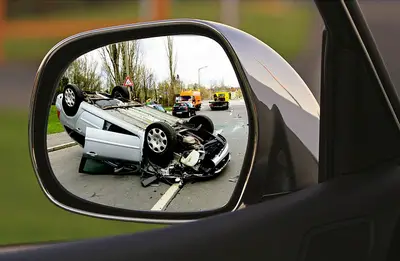What Is Eligible Evidence in a Car Accident Claim?
A car accident can be devastating, resulting in emotional and physical injuries. It can even lead to a significant financial loss for both parties and even damages to property. Losses can include computable things like lost wages and medical bills but also emotional distress, which cannot be easily identified. To receive compensation for these losses, gathering and documenting evidence related to the car accident will be necessary.
The legal value of information can be best assessed by competent legal aid. Hence, if you have suffered injuries, consult an experienced car crash attorney to receive fair compensation for your losses. During your consultation, the lawyer will ask for information about the accident, so it is best to be prepared. Capturing the immediate aftermath of the event can reveal facts of the matter. The first step after being in an accident is to seek medical aid. However, if you can move around, gather the following information to strengthen your legal claim.
1. Photographs
Photographs of the accident scene will preserve evidence such as skid marks, vehicle damage, and any debris in the area. Photos and close-ups of injuries should be taken from different distances and angles. The photo collection should also include pictures of traffic signals, stop signs, or any other signage related to the accident claim.
Debris and skid marks can provide essential pieces of proof regarding how the accident happened. Your photos should include them, car parts that may have been taken off, and broken glass. Take pictures to show the location of these items in relation to the vehicles involved in the car accident.
2. Videos
If the car accident occurred in a location monitored by video surveillance, obtain any available footage related to the accident. The footage will help you provide valuable proof and show who was at fault. You should also take videos with images for further analysis, as images can be deemed doctored or faked, but it is much harder to discredit video evidence.
3. Witness Statements
If your injuries allow you to move around without distress, talk to witnesses who may have seen the car accident. Ask for their names and contact information and what they saw. Ask if they saw any events leading up to the accident and the accident itself. You should also ask if they witnessed any events immediately following the accident. If you have a smartphone, it would be to your benefit to record witness statements. You will have to receive their permission before making recordings.
4. Police Report
The police report about the car accident is essential evidence for your car accident claim. This report should include information, such as who caused the accident and if there were any traffic violations. The report will typically provide contact information for all parties involved in the car accident.
5. Medical Records
You should seek medical attention for injuries sustained in a car accident immediately. Keep a copy of all medical records that are related to these injuries, including:
● Test results
● Physician's notes
● X-rays
● If you went through the emergency room, all documents related to the treatment received
● All hospital records related to the injury or injuries
● Report from any medical professionals that visited you during your hospitalization or that were part of your treatment
This information will show your injuries' seriousness and the treatment you need. All bills related to your medical treatment, including ambulance statements, hospitalization billing, or any others from medical professionals, should be documented.
6. Proof of Lost Wages
Injuries received in a car accident could cause physical difficulties. If this has happened due to your car accident, you may be compensated for lost wages. Documentation will be needed to prove lost wages which includes:
● Pay stubs
● Tax returns
● Bank statements
● Employer verification
The eligible evidence required to prove lost wages can also include any time off you've taken due to injuries, including:
● Vacation time used
● Sick days
● Or any other time off you've taken as a result of your injuries



